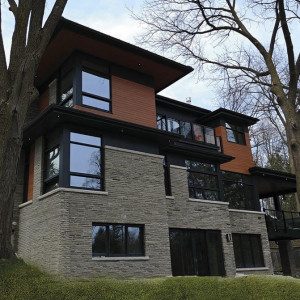| Azaran Fazanama |

| Registration Date | 27 Oct 2020 |
| Revision Date | 27 Oct 2020 |
| Share |
Construction Structural Materials
PVC NanocompositeUV resistante Cheap, light, and easy to install Can be substituted with conventional structural materials such as wood, plaster, cement, concrete and clay Anti-humidity and waterproof Anti-shock Resistant to chemical agents such as salts, fats
Nowadays, light structural panels play a significant role in industrial production and development of buildings. PVC sheets are a commonly used plastic with a chemical compound consist of polyvinyl chloride and can easily compete with wood and clay. The plates can be engraved, embossed, printed, colored and laminated according to user requirements.
They are highly resistant to moisture and corrosion and can be used on the exterior of the building. Sunlight that contains ultraviolet rays and can break internal bonds of PVC and reduce the quality of the facade. Therefore, various materials such as nanoparticle fillers (to enhance the strength of the profile), as well as the radiation-resistant nano-coatings are used to improve the PVC properties.
The results show that the PVC panel coated with the nano-sized objects containing coating has remarkable UV-resistance properties compared to the control samples. The contact angle of the water drop on the surface of the control samples decreased after exposure to UV, indicating a degradation of the coating, whereas this angle did not decrease after applying the nano-coating. Also less color change (ΔE) was observed due to UV radiation in the coated sample.